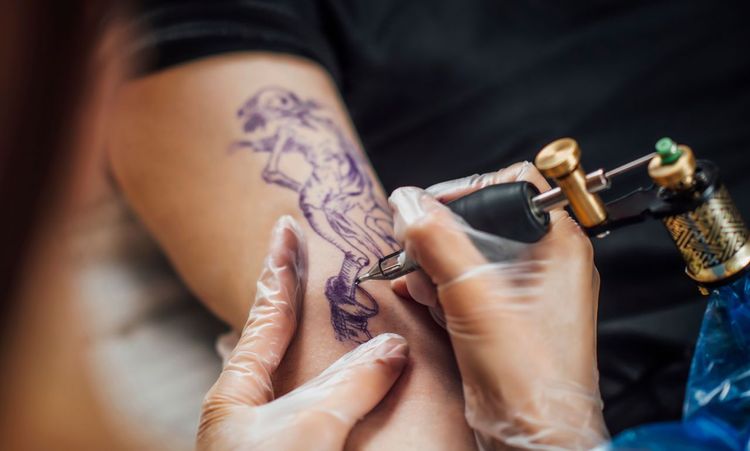Tattoos have become a mainstream form of self-expression, with millions of individuals worldwide choosing to adorn their bodies with ink. While tattoos can be beautiful and meaningful, they also come with questions and concerns regarding their safety. One of the most pressing questions you might have is: Can tattoos cause blood or skin cancer?
This article delves deep into the relationship between tattoos and cancer risks, offering comprehensive insights into current research, potential health risks, and best practices for minimizing complications. By the end of this read, you'll have a well-rounded understanding of the safety aspects of tattoos and how to make informed decisions about getting inked.
The Connection Between Tattoos and Cancer Risk
Understanding the Ingredients in Tattoo Inks
Tattoo inks contain a variety of compounds, including pigments and carriers. The pigments can be organic or inorganic, and some of these substances have raised concerns about their potential to cause cancer. For instance, certain black inks contain polycyclic aromatic hydrocarbons (PAHs), which are known to be carcinogenic.
How Tattoos Interact with Your Skin

When you get a tattoo, the ink is injected into the dermis, the second layer of your skin. This process creates a wound that your body must heal. During healing, your immune system works to remove some of the ink particles, which can travel to your lymph nodes. Understanding this interaction is crucial to evaluating the potential risks.
The Role of the Immune System
Your immune system plays a significant role in how your body reacts to tattoos. It attempts to break down and remove foreign particles, including tattoo ink. This immune response can sometimes lead to inflammation and other issues, which we'll explore in detail.
Research Findings on Tattoos and Skin Cancer
Studies on Tattoo Inks and Cancer
Several studies have investigated the potential link between tattoo inks and skin cancer. While no conclusive evidence directly links tattoos to an increased risk of skin cancer, some research suggests that certain compounds in tattoo inks could pose risks.
Table: Summary of Key Studies on Tattoo Inks and Cancer
Study
Year
Findings
Study A
2010
No direct link found between tattoos and skin cancer.
Study B
2015
Certain inks contain carcinogenic compounds.
Study C
2020
Increased risk of skin irritation and inflammation.
Case Studies of Skin Cancer in Tattooed Individuals
There have been isolated case studies where skin cancer developed in tattooed areas. However, these cases are rare and often involve other risk factors, such as excessive sun exposure or a family history of skin cancer.
The Role of UV Light
UV light can break down tattoo pigments, potentially releasing harmful compounds into the skin. This process can increase the risk of skin damage and possibly cancer, particularly if you frequently expose your tattooed skin to the sun without protection.
Tattoos and Lymphoma: What the Research Says
Understanding Lymphoma
Lymphoma is a type of blood cancer that affects the lymphatic system. Given that tattoo ink particles can migrate to lymph nodes, it's essential to explore any potential connections between tattoos and lymphoma.
Research on Tattoos and Lymphoma Risk
Studies on the relationship between tattoos and lymphoma are limited. However, some research suggests that the presence of tattoo ink in lymph nodes could complicate the diagnosis and treatment of lymphoma, though it doesn't necessarily increase the risk of developing the disease.
Other Health Risks Associated with Tattoos
Allergic Reactions to Tattoo Inks
Allergic reactions to tattoo inks are relatively common and can range from mild irritation to severe responses. Red inks, in particular, are known to cause allergic reactions due to the presence of mercury sulfide and other compounds.
Skin Infections: Causes and Prevention
Tattooing involves breaking the skin, which can introduce bacteria and other pathogens. Infections can occur if proper hygiene practices are not followed. It's crucial to ensure that your tattoo artist uses sterilized equipment and follows all safety protocols.
Scarring and Tattoo Removal Complications
Tattoos can sometimes lead to scarring, especially if you experience an adverse reaction or if the tattoo is not done correctly. Additionally, removing tattoos can be a complex process that carries its own risks, including scarring and skin discoloration.
MRI Scans and Tattoos: What You Need to Know
Some tattoo inks contain metals that can interact with MRI machines, potentially causing discomfort or affecting the quality of the scan. It's important to inform your healthcare provider about your tattoos before undergoing an MRI.
Assessing the Safety of Tattoos
Identifying Safe Tattoo Parlors
Choosing a reputable tattoo parlor is one of the most critical steps in ensuring your safety. Look for parlors that are licensed, have good reviews, and follow strict hygiene practices.
Choosing Quality Tattoo Inks
Ensure that your tattoo artist uses high-quality, safe inks. Ask about the ingredients and research any concerns you might have about specific pigments or carriers.
Minimizing Risks When Getting a Tattoo

There are several steps you can take to minimize risks when getting a tattoo. These include choosing a reputable artist, understanding the ingredients in the inks, and following all aftercare instructions.
Table: Pre-Tattoo Consultation Tips
Tip
Explanation
Research the artist
Look for reviews and examples of their work.
Ask about ink ingredients
Ensure they use safe, high-quality inks.
Discuss potential allergies
Inform the artist of any known allergies.
Aftercare Practices to Reduce Complications
Proper aftercare is essential to prevent infections and other complications. Follow your artist's instructions carefully, keep the tattoo clean, and avoid exposing it to direct sunlight during the healing process.
Conclusion
While the question Can tattoos cause blood or skin cancer? remains complex, current research suggests that the risks are relatively low if you take the proper precautions. By choosing a reputable tattoo parlor, using high-quality inks, and following all aftercare instructions, you can enjoy your tattoos with peace of mind.




